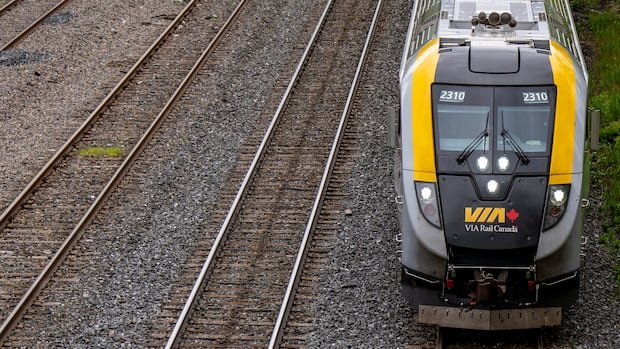Via Rail has provided $31 million in travel vouchers to numerous passengers who experienced delays of more than one hour due to new speed restrictions at rail crossings on CN tracks since last autumn. The vouchers, amounting to 50% of fares, are offered to passengers when a train is delayed beyond an hour on the Quebec City-Windsor route, Via’s busiest section. The compensation increases to 100% for delays exceeding four hours.
The $31 million equates to 7% of Via’s total revenues in 2024, showcasing the challenges faced by passengers amidst significant delays since a conflict with CN began during the Thanksgiving weekend last year. Jacques Roy, a retired logistics professor at HEC Montréal, expressed concern over the situation, highlighting the burden on taxpayers and passengers alike.
CN implemented speed limits at rail crossings used by Via a year ago, citing safety concerns related to the activation of security measures for shorter or lighter trains. This move led to a substantial decline in on-time performance along the Quebec City-Windsor corridor, from 45% before the conflict to 29% by August this year, causing frustration among passengers seeking reliable service.
Transport Minister Steven MacKinnon criticized Via’s performance, deeming it unacceptable and detrimental to both passengers and the company’s operational strategy. The dispute between CN and Via revolves around the axle count on Via’s new Venture trains, which falls short of CN’s safety requirements for activating signals at crossings.
In response to the escalating delays, Via and CN reached a temporary agreement in August, allowing trains to maintain a consistent albeit reduced speed over longer stretches without confirming automatic safety system activation. While this interim measure aims to enhance operational efficiency and minimize delays, its long-term impact on on-time performance remains uncertain.
Via spokesperson Karl Helou acknowledged the early positive outcomes of the revised approach but cautioned against premature conclusions regarding problem resolution. Despite the ongoing legal and regulatory challenges, both Via and CN remain committed to ensuring passenger safety while striving to find common ground on addressing the issues at rail crossings.


